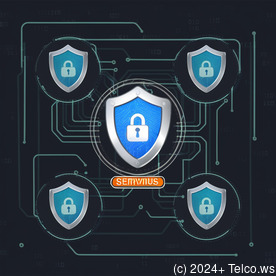
Backup Solutions General Setup: Automated Backups for All Hosted Applications




Overview of Backup Solutions
In today's digital-centric environment, data plays a central role in virtually every business operation. From customer information and transaction records to proprietary intellectual property, the significance of data cannot be overstated. As such, backup solutions serve as essential safeguards, protecting this invaluable asset from a multitude of unforeseen circumstancesincluding hardware failures, cyber-attacks, accidental deletions, and even natural disasters like floods and fires. The reliance on automated backup systems offers a structured and systematic approach to ensure data integrity and availability while minimizing downtime and operational disruption.
The statistics surrounding data loss are alarming; approximately 60% of small businesses that face significant data loss do not survive beyond six months. This statistic underscores the critical need for reliable backup solutions as a fundamental aspect of any organization's data management strategy. Without a concrete backup plan and a well-structured backup solution, companies risk not just financial loss, but also the potential for reputational damage and customer disengagement, which can have long-term implications on business viability.




Significance of Backup Solutions Across Multiple Perspectives
Understanding the significance of backup solutions requires examining them from various perspectives. Each viewpoint sheds light on why automated backups are indispensable in an increasingly data-driven society where data loss can have severe repercussions for organizations.
Economic Perspective
When analyzed economically, the investment in automated backup solutions can yield significant cost savings for businesses. The direct costs associated with data loss incidents are staggering; according to studies, the average recovery costs can exceed $150,000 for a single data breach or loss event. Beyond immediate recovery costs, companies face indirect expenses that can accumulate rapidly, such as lost revenue, diminished productivity, and damaged customer trust. The cost of downtime can quickly spiral, leading businesses to face cascading failures in operations and service delivery.
Moreover, organizations with robust backup systems can significantly enhance customer loyalty and retention rates. In a competitive marketplace, clients are increasingly inclined to engage with businesses that prioritize data protection. This customer trust translates into financial benefits; organizations that minimize risks associated with data vulnerability tend to achieve greater overall profitability and stability.
Political Perspective
From a political and regulatory standpoint, compliance with data protection laws is not just a recommendation; it is often a legal obligation. Legislation such as the General Data Protection Regulation (GDPR) in Europe, the Health Insurance Portability and Accountability Act (HIPAA) in the U.S., and the California Consumer Privacy Act (CCPA) impose strict requirements on how organizations manage data. Automated backup solutions enable businesses to securely store sensitive data, maintain timely backups, and ensure comprehensive audit trails to demonstrate compliance.
With governments increasingly scrutinizing how organizations handle consumer information, non-compliance can lead to severe penalties and legal repercussions. Therefore, the case for implementing automated backup systems becomes even more compelling as they not only help protect valuable data but also assist organizations in navigating the complex regulatory landscape.
Social Perspective
Social awareness around data security has been heightened in recent years, with individuals and organizations becoming more vigilant about data privacy. Consumers expect transparency and accountability regarding how their personal information is collected, stored, and protected. Failure to implement effective backup solutions can damage a company's reputation, resulting in customer dissatisfaction, loss of market share, and erosion of brand value. Consequently, organizations that actively prioritize and implement backup solutions can build stronger relationships with their customers, fostering a culture of trust and reliability.
Environmental Perspective
The environmental implications of data management are increasingly coming to the fore as organizations seek to align their operations with sustainability goals. Cloud-based automated backup solutions offer significant environmental advantages. By reducing the need for physical data transportation and minimizing energy consumption associated with on-premises storage, organizations can significantly lower their carbon footprint. Many leading cloud service providers, such as Microsoft Azure and Google Cloud, have committed to utilizing renewable energy sources and investing in sustainable technologies, making the choice of automated solutions not only a socially responsible decision but also an environmentally advantageous one.
Legal and Regulatory Perspective
Legally, implementing automated backup solutions is integral to protecting organizations from various liabilities. Data breaches can expose businesses to lawsuits and regulatory fines, while improper data handling can lead to serious penalties for non-compliance with data protection laws. Automated backup solutions help organizations maintain accurate records and compliance documentation, making it easier to navigate audits and regulatory reviews. By proactively investing in robust backup solutions, organizations can secure sensitive information and protect themselves from legal repercussions.
Historical Perspective
Historically, the evolution of backup solutions can be traced through significant technological advancements and pivotal events that have shaped the landscape of data security. The rise of ransomware attacks in the early 2010s marked a turning point in how organizations perceived data protection. Many businesses rushed to adopt proactive strategies for disaster recovery, recognizing the critical importance of safeguarding their data. The introduction of cloud computing has further revolutionized data backup solutions, transitioning organizations from traditional physical storage methods to more versatile and scalable cloud-based approaches.
Technological Perspective
Technological advancements in recent years have dramatically transformed the landscape of backup solutions, making automated backups more accessible and cost-effective than ever. The rise of cloud computing and advanced storage technologies has enabled a level of customization and scalability that was previously unattainable. By leveraging cloud services, organizations can easily scale their backup capacity according to their data demands without incurring high infrastructure costs. Moreover, emerging technologiessuch as Artificial Intelligence (AI) and Machine Learning (ML)are optimizing backup processes, allowing for predictive analytics that can identify potential threats and vulnerabilities before they escalate into more severe incidents.
Business Perspective
From a business standpoint, the implementation of reliable backup solutions is essential for maintaining organizational resilience and operational continuity. Downtime resulting from data loss incidents can lead to considerable financial losses. One study found that the average cost of downtime for a small to medium-sized business can exceed $8,000 per hour! In contrast, organizations that deploy automated backup systems are better equipped to minimize interruptions, ensuring seamless service delivery even amidst disruptions. Effective backup solutions also support enterprise-wide business continuity planning, enabling organizations to proactively prepare for emergencies and recover with minimal impact on their operations.
Psychological Perspective
Psychologically, knowing that strong data backup systems are in place can effectively alleviate anxiety among employees regarding data security. This sense of security creates a positive workplace environment, empowering employees to focus on their core tasks without the constant worry of potential data loss or breaches. A culture of security enhances employee satisfaction and can lead to increased productivity and overall morale, ultimately benefiting the organization as a whole.
Development Perspectives
Lastly, addressing backup solutions from a developmental standpoint highlights a correlation between tech adoption and economic growth. Organizations that embrace modern backup technologies not only protect their data but also foster innovation and growth. In todays fast-paced environment, those organizations that prioritize data safety are well-positioned to capitalize on market opportunities and navigate challenges effectively, ensuring ongoing success in their respective industries.
Cybersecurity Perspective
Lastly, viewing automated backup systems through the lens of cybersecurity emphasizes their critical role in an organizations overall data protection strategy. With the rising tide of cyber threats, maintaining robust backup solutions is essential for protecting sensitive information and preserving operational integrity. Automated backups allow businesses to maintain historical data snapshots, enabling them to quickly recover from incidents like ransomware attacks and other data loss scenarios smoothly and effectively.




Core Concepts of Backup Solutions
The landscape of backup solutions includes several core concepts that organizations must understand to implement effective data protection strategies. Through familiarity with these concepts, businesses can make informed decisions about their backup requirements and processes.
Cloud Backup
Cloud backup solutions involve storing data remotely in a secure environment managed by a cloud service provider. This approach offers significant advantages, including high scalability, cost-effectiveness, and offsite data security. By using cloud backup, organizations can easily scale their storage needs without the expense of maintaining physical infrastructure. Additionally, cloud providers often implement high levels of data encryption, ensuring that sensitive information is protected both at rest and during transmission. Major providers such as Amazon Web Services (AWS), Microsoft Azure, and Google Cloud have robust platforms that cater to diverse business needs, offering flexible pricing models based on usage.
On-Premises Backup
On-premises backup solutions entail using physical hardware located within the organizations premises to store backup data. While this method allows for immediate access to data and gives organizations direct control over their backup environment, it also requires higher maintenance costs and poses risks related to local disasters. Common challenges include hardware failures, system outages, and the need for regular updates and replacements. Companies must carefully evaluate their requirements to determine whether on-premises storage aligns with their overall business strategy and risk profile.
Hybrid Solutions
Hybrid backup solutions combine both cloud and on-premises strategies, offering a nuanced approach that allows organizations to customize their data protection based on specific compliance needs and operational demands. In a hybrid setup, critical data can be stored on local servers for quick access while also being securely backed up in the cloud for redundancy. This multifaceted approach provides organizations with greater flexibility, as they can tailor their backup strategy in line with evolving business requirements and respond more effectively to potential threats.
Restoration Processes
The restoration process is a vital aspect of data management, encompassing the procedures and steps required to recover data from backups following loss or corruption incidents. A well-defined restoration protocol is imperative for minimizing downtime and ensuring the rapid recovery of operations. Automated backup solutions often come equipped with user-friendly interfaces and quick recovery features, allowing organizations to restore specific files, directories, or complete systems with ease. Clear documentation of restoration procedures is crucial, as it ensures that stakeholders know their roles and responsibilities during emergencies.




Conclusion: Embracing Backup Solutions for Future Readiness
In summary, the critical importance of automated backup solutions in todays business environment cannot be overstated. As organizations navigate the complexities of digital transformation, the urgency to protect data assets continues to escalate. Through examining the economic, legal, social, technological, and environmental implications, businesses can recognize the imperative of implementing reliable automated backup solutions. These systems do not only protect against potential risks but also serve as foundational elements for organizational resilience, operational continuity, and long-term sustainability. By prioritizing backup solutions, organizations position themselves favorably for growth and innovation, ultimately leading to ongoing success in a competitive landscape.
Your Backup Solution Awaits
Interested in knowing more? Feel free to reach out to us at www.telco.ws via email, phone, or our online form. If you're ready to take the next step in securing your data, our specialized Backup Solutions Service is available for just $799. To proceed, visit our Checkout Gateway and utilize our Payment Processor to remit a payment of $799 in favor of our company. Once you've completed your payment, please contact us with your receipt and details to arrange your Backup Solutions Service. Thank you for your interest!
